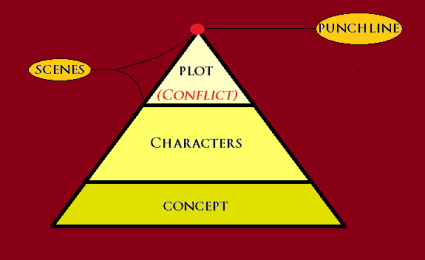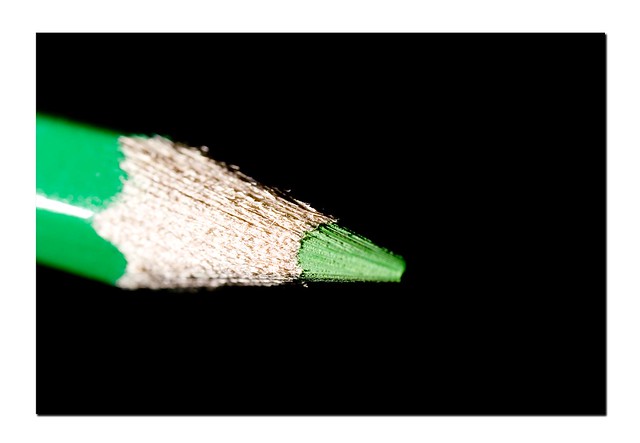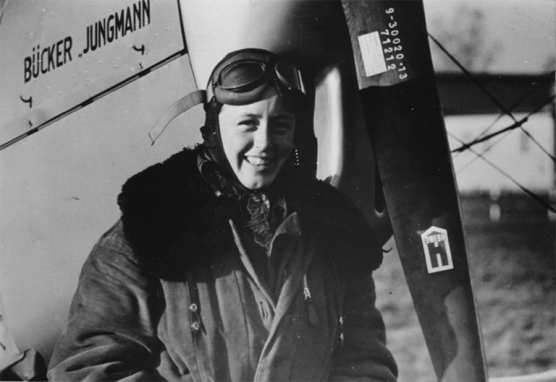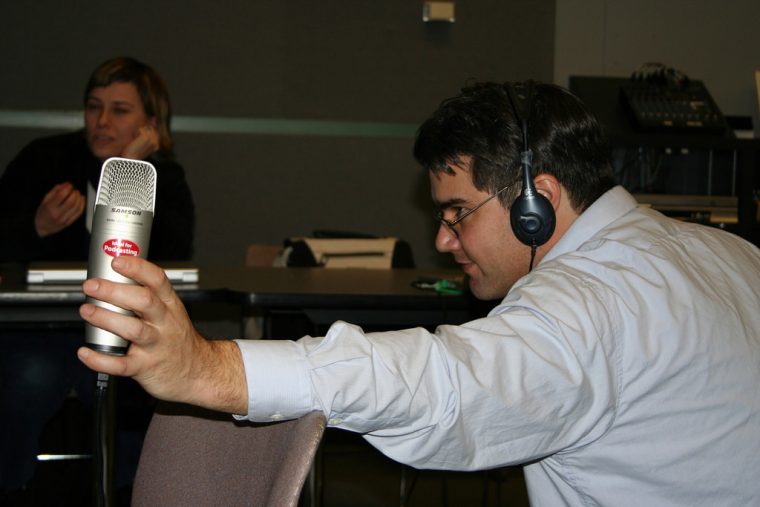Hierarchy of Stories: Plot
A child asked his father, “How were people born?” So his father said, “Adam and Eve made babies, then their babies became adults and made babies, and so on.” The child then went to his mother, asked her the same question and she told him, “We were monkeys then we evolved to become like we are now.” The child ran back to his father and said, “You lied to me!” His father replied, “No, your mom was talking about her side of the family.”
-Joke by Anonymous in laughfactory.com
Jokes are perfect stories. They start with a conflict lead by a short sequence of events that ens with a punchline. It provides you with only the necessary information so the punchline works. Jokes are precise, concise and never wastes your time.
That’s a perfect story.

I made this pyramid to explain how all aspects of a story head towards a punchline. From Aristotle to Anton Chekhov to David Mammet to Aaron Sorkin: Plot. is. everything.
The plot, in essence, is a problem (conflict, mystery, mission,…) that the characters have to solve. Characters exist to MOVE the plot–step closer to solving the problem. Finally, the concept is born from the overall story.
As the word “plot” suggest, creating a story is plotting with these characters a sequence of events to punch someone in the face with a twist (punchline).

[Photo: get to the point, by backonthebus, Licensce Creative Commons]
“Remove everything that has no relevance to the story. If you say in the first chapter that there is a rifle hanging on the wall, in the second or third chapter it absolutely must go off. If it’s not going to be fired, it shouldn’t be hanging there.”
-Anton Chekov
I remember for the first time in my life I didn’t skip an ad in a YouTube video. This was the ad:
https://youtu.be/RCBpxKEHRNk
The only reason they caught my attention was because within 10 seconds, they presented me a conflict. They developed this problem until it reaches the punchline– the solution=the brand. The ad entertained me to the point of spreading the word and didn’t waste a second of my life.
The next time you’re experiencing a story (movie, book, series, ad…), when you lose attention, ask yourself: “Is this scene necessary?” When the story ends try to remember a scene that lost your attention and ask yourself: “What was the point of that scene?”, “If I take out that scene, does the story makes sense?”
So if you don’t want your story to be pointless, get to the point.


